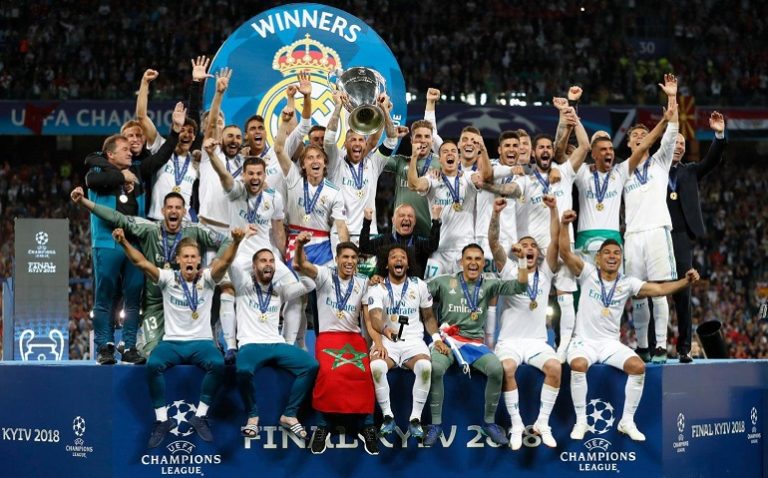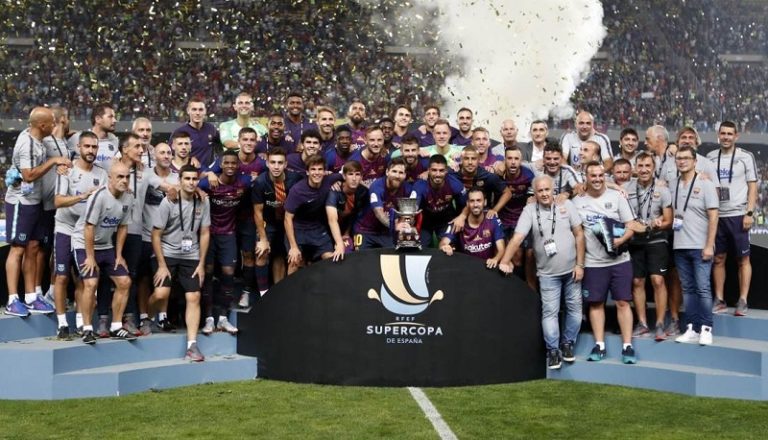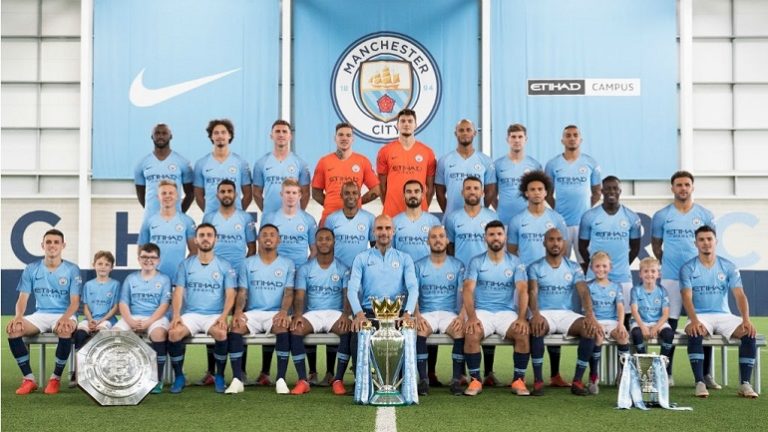Arsenal F.C.

Arsenal (F.C.) Football Club of Islington, London, nicknamed ‘the Gunners’, is a professional football club, plays in the English Premier League, is one of the top British football clubs. Started in Plumstead Common (1887), then Sportsman Ground in (1887–1888), they floated between different grounds before settling finally in Emirates stadium (2006). This home ground location proved to be a factor for the club’s existence, financially and geographically, one such major cause was for the fans a location that easily accessible for them to attend clubs various events, most important of all, the games.
Arsenal has won 13 League trophies, 13 FA Cups, 15 FA Community Shields, the League Centenary Trophy, two League Cups, one European Cup Winners’ Cup, and one European Fairs Cup. The longest run and unbeaten streak in the top tier of English football shows the prominence of the club.
Present lineup or Team Squad
Arsenal’s current manager is Spanish Unai Emery, who was a modest former player was appointed in May 2018. Club’s majority shareholder is an American businessman Stan Kroenke and current chairman is Sir Chips Lindley Keswick.
Goalkeepers: Petr Cech (No.1), Bernd Leno (No.19).
Defenders: Hector Bellerin (No.2), Sokratis Papastathopoulos (No.5), Laurent Koscielny (Captain,No.6), Stephan Lichtsteiner (No.12), Rob Holding (No.16), Nacho Monreal (No.18), Shkodran Mustafi (No.20), Carl Jenkinson (No.25), Konstantinos Mavropanos (No.27), Sead Kolasinac (No.31).
Midfielders: Mohamed Elneny (No.4), Henrikh Mkhitaryan (No.7), Aaron Ramsey (No.8), Mesut Ozil (No.10), Lucas Torreira (No.11), Ainsley Maitland-Niles (No.15), Denis Suarez (No.22), Matteo Guendouzi (No29), Granit Xhaka (No.34).
Forwards: Alexandre Lacazette (No.9), Pierre-Emerick Aubameyang (No.14), Alex Iwobi (No.17), Danny Welbeck(No.23).
Summary of History
Founded as nameless(though they were referred to as the ‘dial square’ after the Sundial hung on the entrance of their factory) in October 1886 in Woolwich, South East London by David Danskin (key Scottish founding member of the Dial Square Football club, mechanical engineer and footballer) and his fellow 15 monition workers of Woolwich Arsenal Armament Factory. After their first game, they adopted the name the “Royal Arsenal”, ‘Royal’ from the pub they met, the’ royal oak club’, and ‘arsenal’ from where they worked. In 1891 they renamed themselves as Woolwich Arsenal, before, in 1914, changing their name for the final time, till date, as Arsenal.
Initially, the club was based in Woolwich, following the renaming the club moved to the Arsenal Stadium in the Highbury section of the London borough of Islington. In 2006 it relocated to a new ‘Emirates stadium’ in Islington’s Holloway district.
After the formation, on December 11, 1886, the dial squares started by beating 6-0 Eastern Wanderers. At that period the club was a merely an amateur one, in 1891 the club (as Royal Arsenal) turned professional. Later in 1893 they (as Woolwich Arsenal) joined the football league in the second division and also became the only professional club and first to be from the south part of the country. That year, the club had their biggest ever victory over Ashford United by beating 12-0 in the FA Cup.
In 1903 the club ascended to the first division. Following that success, the club entered a period of difficulties which led them almost on the brink of bankruptcy, due to various reasons, primarily financial, and also geographical, as it was isolated from the rest of the league and also new clubs were more accessible causing low attendances for the club.
In 1910 with the help of businessman Henry Norris averted this demise. The club was relegated to the second division in 1913 and after that moved to the new Arsenal stadium. In 1919 the club was voted to be promoted to the first division.
One of the most notable eras of the club began under the guidance of its new manager Herbert Chapman (1925-34) and transformed club for the better. Initiated a new training regimen and signed some reliable star players. This transformation resulted in club’s first FA Cup in 1930 by defeating Huddersfield Town 2-0 in the final. The 30s proved to be one of the most fruitful decades, laid the foundation by Chapman, the club won 2 FA Cups and five premier league titles. But sadly during the mid-1933–34 seasons, Chapman died.
In the Post WW2 season, Arsenal became victorious in the League, winning the 1948 title and another in 1953 and FA Cup in 1950. This successes followed by a prolonged era of drought, the club failed to win another in the next 17 years. Also, the 53’s aging squad failed to find a proper replacement. Club’s this kind of mediocre performance continued up until the beginning of the 70s. Though had some lesser successes under Bertie Mee, in 1967–68 and 1968–69, when they reached the finals of League Cups.
Finally, in 1969-70, the club won the Inter-Cities Fairs Cup and the following year (1970-71) the doubles, Premier League and FA Cup. This followed by some humble performance by the club, runners up in FA Cup in 1972 and in First Division in 1973. Apart from 1979 victory in the final by beating Manchester United by 3–2 Arsenal reached three successive FA Cup finals in 1978, 1979 and 1980 and lost to Valencia by 5–4 on penalties in the 1980 European Cup Winners’ Cup Final.
Under George Graham’s (1986-95) suitable defensive playing strategy the club won their first ever League Cup in 1987 by beating Liverpool in the Wembley Stadium by 2-1, followed by a Football League Centenary Trophy in 1988 and Football League title in 1988-89, 1990-91 and 1992-93 FA Cup and League Cup double and finally in 1994 the European Cup Winners’ Cup by beating defending champion Parma 1-0 in the final. Graham was sacked in 1995 followed by controversy and a year ban from football.
Graham was succeeded by Arsène Wenger (1996-2018), the most successful and longest serving manager of the club. He helped Arsenal becoming the 21st-century club through changes in training, diet regimen, and scouting. He acquired some key players like Patrick Vieira and Thierry Henry. These cumulatively affected the club for the better, in 1997-98 they won another Premier League and FA Cup double, then the third double in 2001-02.
They won 2003-04 Premier League without losing a single match, 2003 and 2005 FA Cups. In 2005–06 Champions League final they were beaten by Barcelona, reached the 2007 and 2011 League Cups finals, but beaten both times. This followed by a little stretch of bad patch up until 2014, when in the FA Cup final finally Arsenal had beaten Hull City and in the 2015 final Aston Villa 4–0 and in 2017 final Chelsea 2–1.
Honours
| Tournament | Year/Season |
|---|---|
| European Fairs Cup (1) | 1970 |
| European Cup Winners’ Cup (1) | 1994 |
| Premier League / First Division (13) | 1930–31, 1932–33, 1933–34, 1934–35, 1937–38, 1947–48, 1952–53, 1970–71, 1988–89, 1990–91, 1997–98, 2001–02, 2003–04 |
| League Cup (2) | 1986–87, 1992–93 |
| FA Cup (13) | 1929–30, 1935–36, 1949–50, 1970–71, 1978–79, 1992–93, 1997–98, 2001–02, 2002–03, 2004–05, 2013–14, 2014–15 |
Most Notable Players
Over its 130 years history, many standing out players played in Arsenal. Among the few notable players who have played for the club are,
- Dennis Bergkamp (Forward, 1995-2006, 423 appearances, 120 goals)
- Thierry Henry (Forward, 1997-2007 & 2012, 377 appearances, 228 goals)
- Tony Adams (Defender, 1983-2002, 669 appearances, 48 goals)
- Alex James (Midfielder, 1929-37, 261 appearances, 27 goals)
- Cliff Bastin (Left wing, 1929-46, 396 appearances, 178 goals)
- Robert Pires (Midfielder, 2000-06, 284 appearances, 84 goals)
- David Seaman (Goalkeeper, 1990-2003, 564 appearances, 0 goals)
- Liam Brady (Midfielder, 1973-80, 307 appearances, 59 goals)
- Charlie George (Forward, 1969-75, 179 appearances, 49 goals)
- Patrick Vieira (Midfielder, 1996-2005, 406 appearances, 33 goals)
- Pat Jennings (Goalkeeper, 1977-84, 327 appearances, 0 goals)
- Freddie Ljungberg (Midfielder, 1998-2007, 328 appearances, 72 goals)
- Kanu (Forward, 1999-2004, 198 appearances, 44 goals)
- Sol Campbell (Defender, 2001-06 & 2010, 211 appearances, 12 goals)
- Frank McLintock (Defender, 1964-73, 403 appearances, 32 goals)
- Ted Drake (Forward, 1934-39, 184 appearances, 139 goals)
- David Jack (Midfielder, 1929-34, 208 appearances, 124 goals)
- John Radford (Forward, 1962-76, 481 appearances, 149 goals)
- Ashley Cole (Defender, 1999-2006, 228 appearances, 9 goals)
Sources:
https://www.arsenal.com/history
https://en.wikipedia.org/wiki/Arsenal_F.C.
https://www.footballhistory.org/club/arsenal.html




